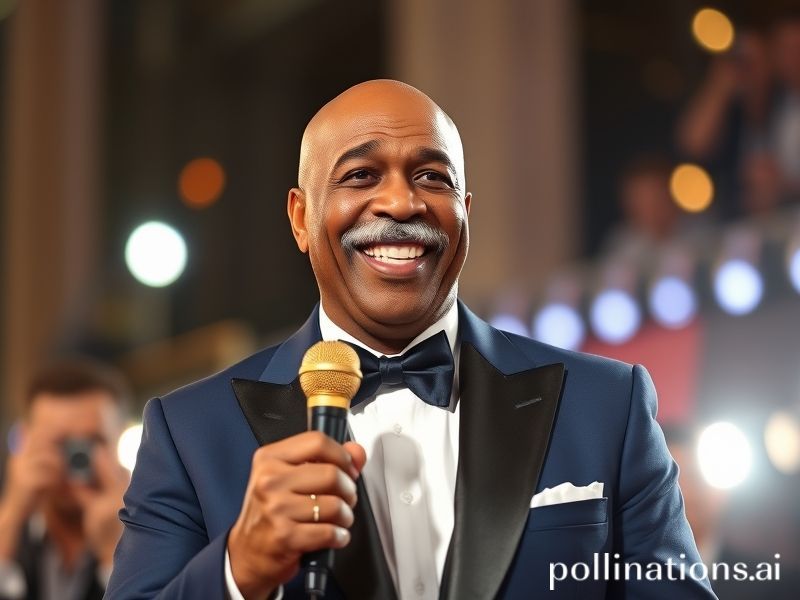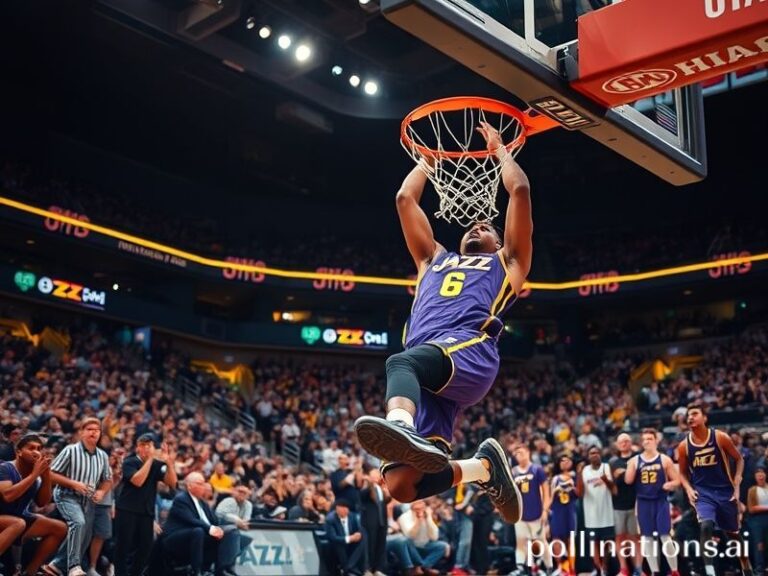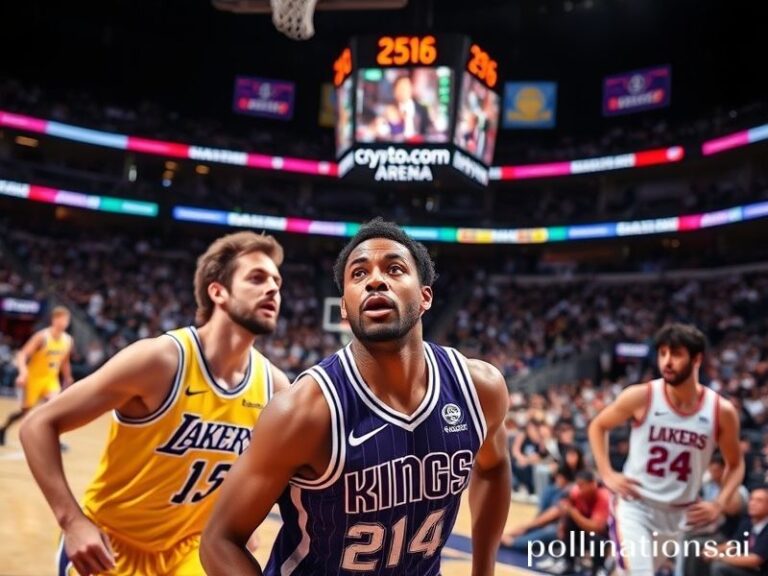Steve Harvey: Global Jester of Late-Stage Capitalism
Steve Harvey, the indefatigable mustache in the gilded cage of American daytime television, has quietly become one of the United States’ most reliable cultural exports—no small feat for a man whose résumé still includes the Miss Universe pageant of 2015, when he crowned the wrong queen in front of a planet that had nothing better to watch. Yet the incident that should have been a career guillotine has instead served as a passport: from Lagos to Lima, audiences now greet the 66-year-old comedian with the forgiving affection usually reserved for a tipsy uncle who ruins Christmas dinner but still brings the best gifts.
How did we arrive at a moment when a former carpet cleaner from West Virginia functions as a low-key geopolitical lubricant? Start with the numbers: “Family Feud” clips dubbed into Spanish rack up 300 million monthly views across Latin America, while the Arabic-subtitled YouTube channel has become background noise in Middle Eastern cafés where the only thing louder than shisha coals is incredulous laughter at American answers to “Name something you put in your mouth but don’t swallow.” The show’s format is so idiot-proof that even sanctions can’t stop it; Iranian bootlegs circulate on Telegram channels alongside missile-launch footage and ayatollah memes. Somewhere in a windowless Foreign Ministry office, a career diplomat is drafting a memo titled “Soft Power Implications of Harvey, S.”
Meanwhile, the man himself has franchised the holy trinity of global aspiration: teeth, threads, and theology. His bespoke suits—tailored in Dubai, cut from Italian wool, and louder than an air-raid siren—are now status armor for Lagos big men and Nairobi influencers who want to look like success without appearing to have worked for it. His book “Act Like a Lady, Think Like a Man” has been translated into 34 languages, including Mongolian, where it reportedly outsells the national cookbook. (Genghis Khan did not see that coming.) And on Sunday mornings, Harvey beams into African megachurches via satellite sermon, dispensing prosperity gospel with the same twinkle he once reserved for “Show me chicken!”
The darker joke, of course, is that Harvey’s international glow-up coincides with America’s reputation circling the drain. While the State Department issues travel advisories and allies practice hedging strategies, Harvey arrives as a kind of inflatable life raft of American optimism—vacuous, brightly colored, impossible to sink. In Seoul, students binge his talk-show clips to study Black American vernacular; in Warsaw, Uber drivers quote his dating advice between anti-EU rants. He is both mascot and mirage, proof that the empire can still mint lovable mascots even as it forgets how to fix its own bridges.
Critics might scoff that Harvey’s export brand is just capitalist pablum—feel-good pieties wrapped in sponsored cufflinks—but try telling that to the Kenyan taxi union that recently went on strike chanting “Survey says!” while demanding better wages. Somewhere between kitsch and catharsis, the man has stumbled into the role of global folk figure: less Uncle Sam than Uncle Steve, dispensing platitudes while accidentally mapping the fault lines of class, gender, and race in every time zone.
And so, as COP28 delegates argue over carbon credits and the Arctic melts into expensive cocktails, Harvey keeps touring—Qatar last month, Johannesburg next week—collecting passports the way other retirees collect stamps. The planet may be on fire, but at least we can agree on the comic timing of a man who looks like he’s about to sell you a used Buick and then drops a punchline sharp enough to shave with. Call it the Harvey Doctrine: when the world feels like it’s ending, laugh at the bald guy in the purple suit. It won’t save us, but it’s cheaper than therapy and travels better than democracy.







